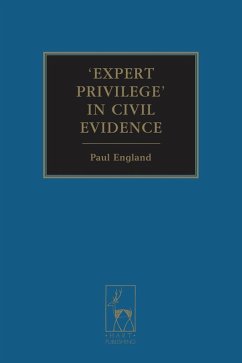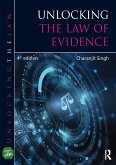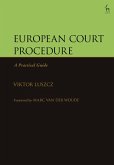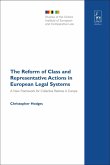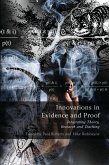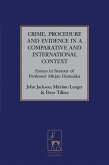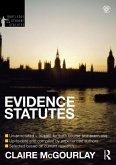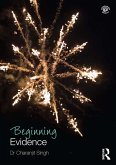Expert evidence frequently wins or loses cases. The importance of handling that evidence properly is therefore paramount. Fundamental to this is the application of privilege. Indeed, thorny privilege issues relating to expert documents, drafts, communications, instructions, collateral use, joint statements, statements of replaced experts, amongst other issues, come up time and again in practice.
This book approaches 'expert privilege' as a subcategory of privilege of its own. This is not because it is defined by a uniform subset of rules that apply to all situations in which expert material is at issue, but precisely because it is not. Neither can assumptions about privilege in expert evidence be based on other areas of application. Instead, 'expert privilege' is a highly idiosyncratic and problematic area. None of the traditional privilege texts are dedicated to this important subject. A book dealing with 'expert privilege' as a subject area of its own is therefore highly overdue. This is the first such book.
This book provides an overview of the issues, cases and rules that feature in this complex area, with the touchstone of practicality kept very much in mind throughout. The order in which issues are discussed follows the process by which expert evidence is prepared, from instruction through to collateral use. The intended readership is solicitors and counsel practicing in England and Wales in all the areas of civil, commercial litigation that use expert evidence. This book will also be of interest to practitioners in other common law countries and academics who are interested in English procedural law.
This title is included in Bloomsbury Professional's International Arbitration online service.
This book approaches 'expert privilege' as a subcategory of privilege of its own. This is not because it is defined by a uniform subset of rules that apply to all situations in which expert material is at issue, but precisely because it is not. Neither can assumptions about privilege in expert evidence be based on other areas of application. Instead, 'expert privilege' is a highly idiosyncratic and problematic area. None of the traditional privilege texts are dedicated to this important subject. A book dealing with 'expert privilege' as a subject area of its own is therefore highly overdue. This is the first such book.
This book provides an overview of the issues, cases and rules that feature in this complex area, with the touchstone of practicality kept very much in mind throughout. The order in which issues are discussed follows the process by which expert evidence is prepared, from instruction through to collateral use. The intended readership is solicitors and counsel practicing in England and Wales in all the areas of civil, commercial litigation that use expert evidence. This book will also be of interest to practitioners in other common law countries and academics who are interested in English procedural law.
This title is included in Bloomsbury Professional's International Arbitration online service.

